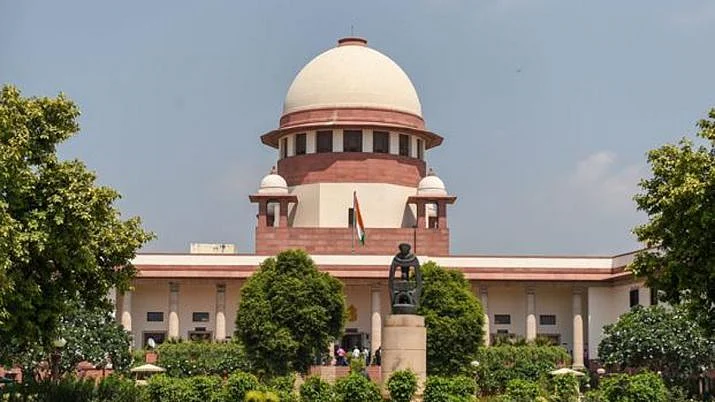SC appoints Justice Madan B Lokur Committee to monitor and prevent stubble burning in Punjab, Haryana & UP
It directed chief secretaries of Punjab, Haryana & UP to enable Justice Lokur to devise additional means and methods for preventing burning of stubble in the states

The Supreme Court has appointed a one-man Committee of Justice (Retd.) Madan B. Lokur to monitor and take steps to prevent stubble burning in the states of Punjab, Haryana & Uttar Pradesh, legal news website LiveLaw.in has reported.
A bench of Chief Justice SA Bobde, Justices AS Bopanna & V. Ramasubramaniun accepted the suggestion in the plea to appoint a one-man committee of Justice Lokur to prevent stubble burning, stating that the chief secretaries of Punjab, Haryana & UP shall enable Justice Lokur to devise additional means and methods for preventing burning of stubble in the states.
"This order not an indictment of any authority. We are only concerned that citizens of Delhi NCR are able to breathe fresh clean air and while the court is shut, we don't want anything to happen during these nine days," CJI SA Bobde said.
The Court further observed that the NCC, NSS & Bharat Scouts & Guides be deployed in the respective states for assisting in the monitoring of stubble burning in the agricultural areas in the states.
"We trust that the authorities in charge shall place them at the disposal of the "Lokur Committee" for this purpose. In addition, we direct that the teams already in existence in Punjab & Haryana meant for preventing stubble burning shall report to & take instructions from the Lokur Committee. We direct that the States shall provide adequate facilities to the Committee for carrying out its job including secretarial assistance and transportation if necessary," the SC said.
In this backdrop, the court stated that states of Punjab, UP & Haryana shall provide adequate transportation to volunteers and that Committee will submit a report fortnightly or as and when required. "All authorities including the EPCA shall report to the Committee for information sought," added the bench.
Remarking that "in spite of measures, there had been a reported increase in Stubble burning which will pollute atmosphere of NCR inevitably," the top court observed that it is not inclined to make an assessment of which measure has been effective or not. "We are confident that each measure has been taken by authorities with intention of alleviating pollution," the bench added.
Senior Advocate Vikas Singh appeared for the petitioner law student and told the court that if this petition is listed with the MC Mehta matters concerning Stubble Burning on November 23, it will be too late.
"By that time, we will be overcome with smog," he said.
As the stubble burning season (from September till January) has arrived, the Petitioners — a 3rd year law student, Aman Banka and a Class XII student, Aditya Dubey highlighted that stubble burning contributes to almost 40-45% of air pollution in Delhi.
They therefore sought to ensure that the Air Quality Index level in Delhi-NCR does not critical levels during the stubble burning season this year, especially in view of the prevailing Covid-19 Pandemic.
"The "Right To Breathe" Clean Air is an integral part of the Fundamental 'Right to Life' enshrined in Article 21 of the Constitution of India and the said fundamental right is being violated by the failure of the Union Government and the State Governments, to keep the air pollution levels in Delhi-NCR below hazardous levels every year during the period between September to January," they submitted.
Apart from regulation of stubble burning, the Petitioners had urged the following directions be made to the Delhi Government:
- Direct that all polluting industries and construction activities in Delhi- NCR may be allowed to remain in operation only on days when the AQI level is less than 150, during the period between September, 2020 to January, 2021 and upon an increase above this AQI level an automatic ban on industrial and construction activities may become operational, which may continue till the AQI level comes below 150;
- Direct that in case the AQI level increases about 200 then the Odd-Even Policy of the Delhi Government with regard to vehicular traffic may automatically become operational, and may continue till the AQI level drops back below 150;
- Nominate a one-man commission headed by a Retired Supreme Court Judge, preferably Justice Madan Lokur, to control & supervise the efforts of the Union & State Governments to ensure that AQI levels in Delhi do not rise to hazardous levels this year.
Follow us on: Facebook, Twitter, Google News, Instagram
Join our official telegram channel (@nationalherald) and stay updated with the latest headlines